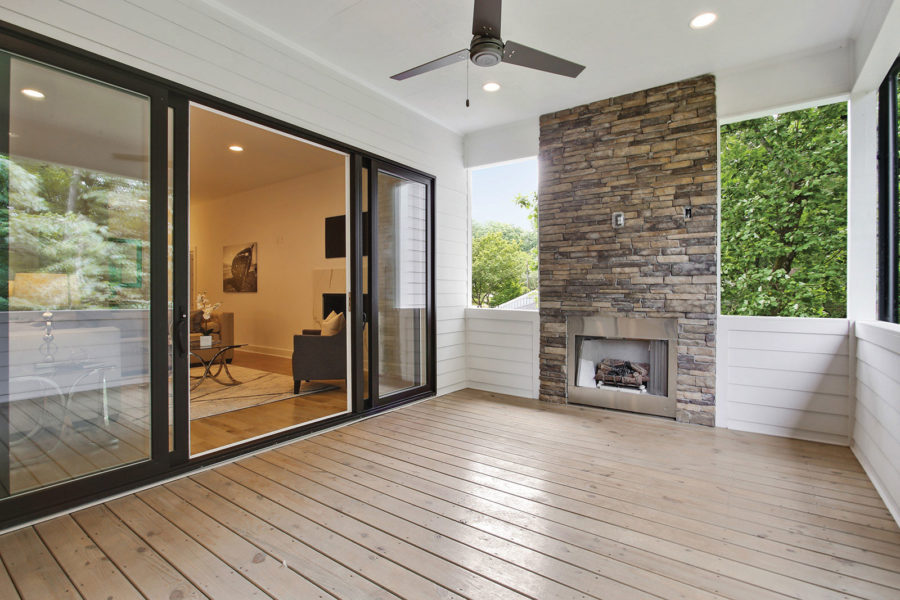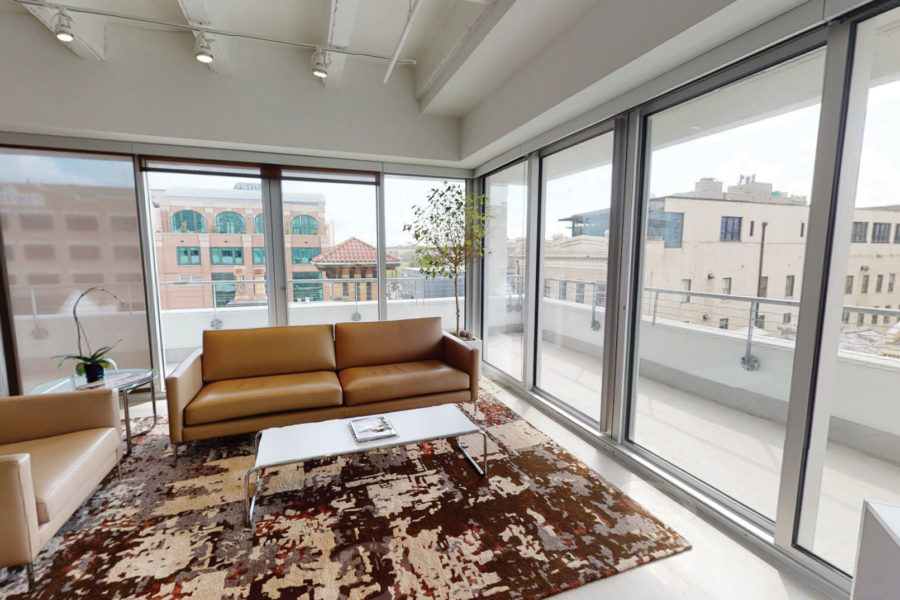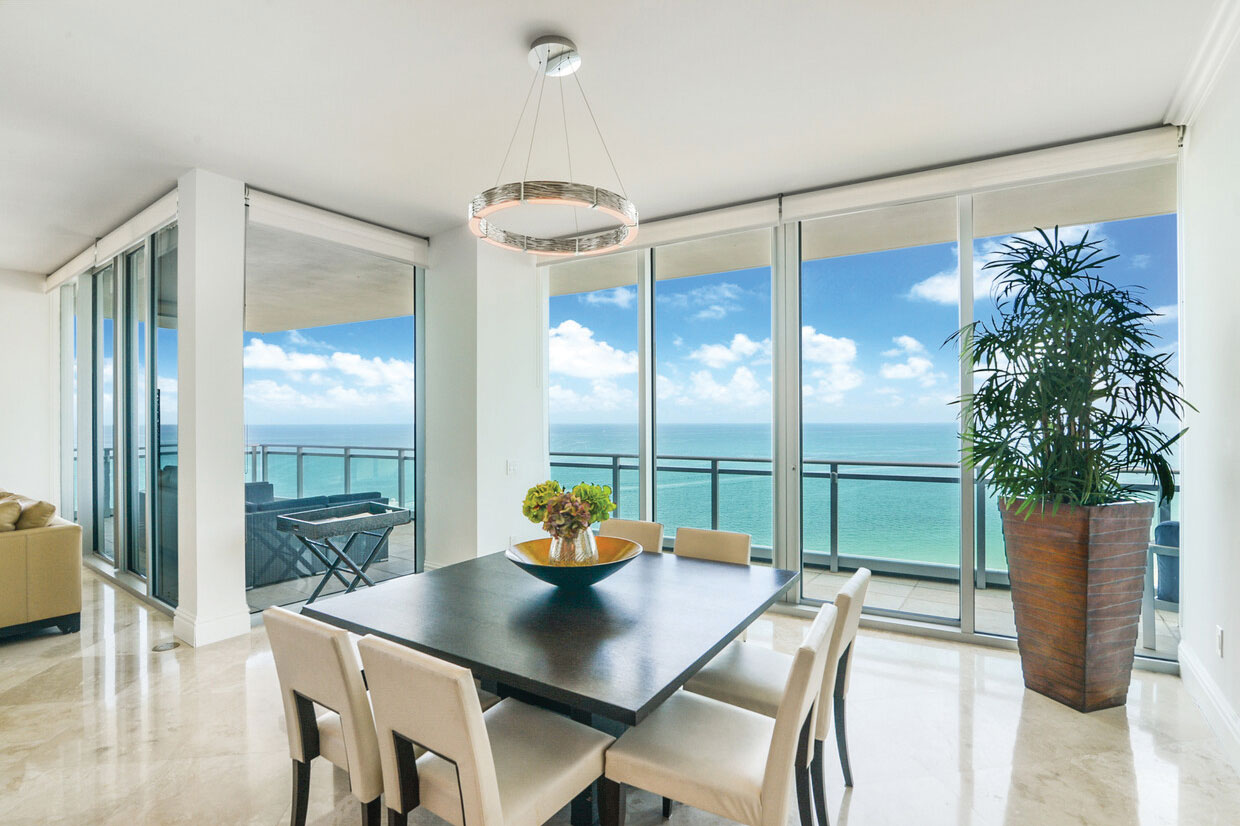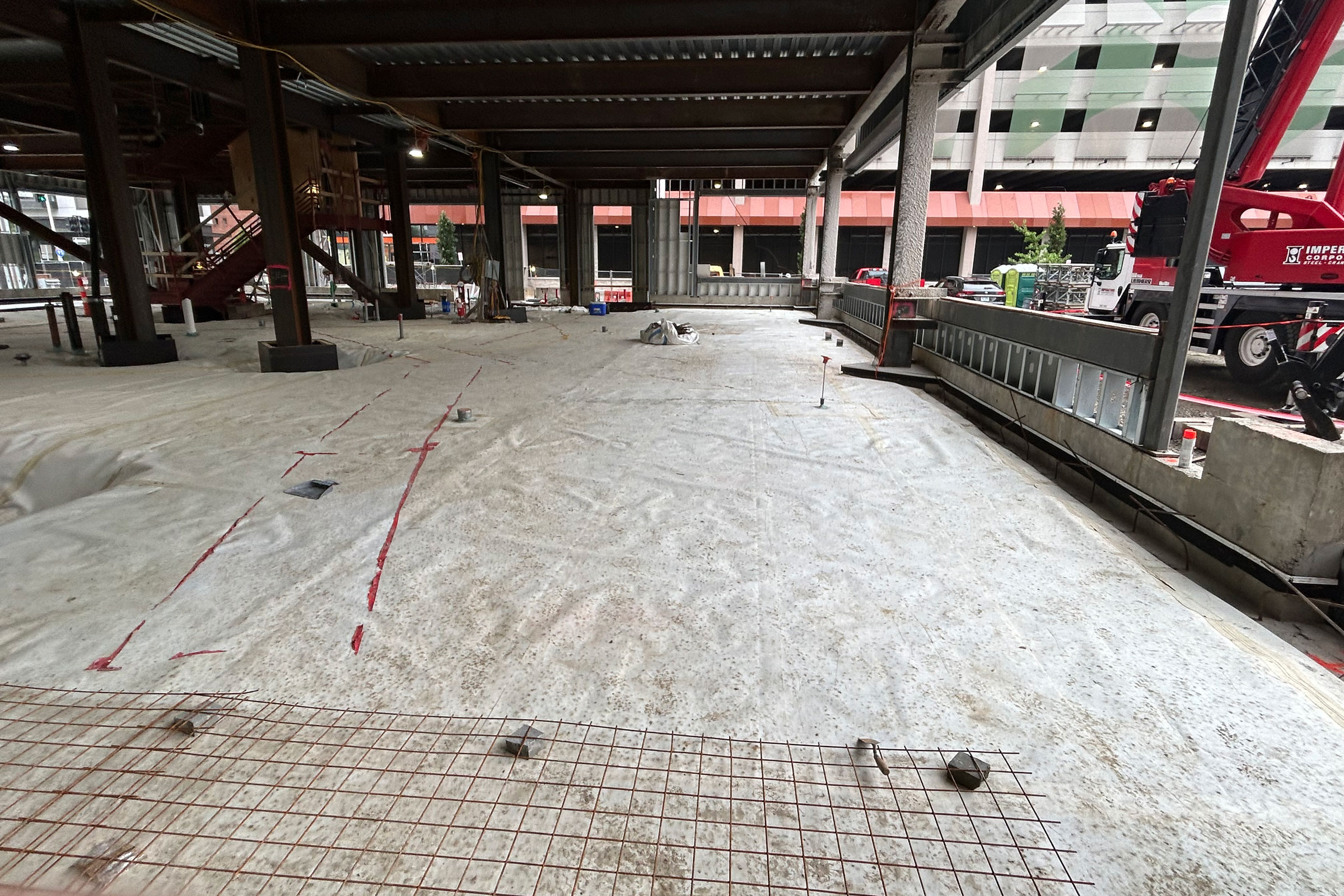Story at a glance:
- Aluminum is often sought for sliding glass doors for its durability and energy efficiency.
- Aluminum is 100% recyclable and can be turned into many forms.
- YKK AP offers a wide array of sliding aluminum glass doors.
Aluminum is an increasingly energy-efficient building material—and using it can help keep other building materials out of landfills.
Today’s architects and designers are constantly looking for new sustainable building materials to make for longer lasting projects with the potential for LEED and other certifications.
It’s also a popular choice for sliding glass doors when compared to other possibilities, including vinyl. Here we explore some of the benefits of sliding aluminum glass doors as compared to vinyl and other alternatives.
Why Choose Aluminum

YKK AP’s StyleView sliding glass doors are aluminum-reinforced for added durability. Photo courtesy of YKK AP
Sliding aluminum glass doors are typically very durable and require little maintenance.
They’re also lighter than, say, an alternative like steel. They also tend to be more on the affordable side and a sustainable, energy-efficient option, according to Angi.com.
Condensation resistance is another benefit of aluminum, and aluminum is 100% recyclable and able to take many forms.
That said, their lightweightness could lead to more dents over time.
PROS: Lightweight, low-maintenance, energy-efficient, condensation resistance, recyclable
CONS: Possibility for dents over time
Sliding Aluminum Glass Doors to Consider
YKK AP offers a number of options for sliding aluminum glass doors—from the YSD 600 thermally broken architectural (AW) rated sliding glass door designed to provide greater energy efficiency and occupant comfort to the YSD 400 heavy duty sliding door system that complies with higher structural loads.
MegaTherm Aluminum Framing System
A key component to YKK AP’s thermally broken systems is its MegaTherm aluminum framing system, which saves energy and reduces condensation. The polyamide material is much stronger and has a higher melting point than PVC or polyurethane used in other systems—and since its coefficient of thermal expansion is very close to aluminum, the bond between it and the extrusion maintains structural integrity through a wide range of temperature fluctuations.
The MegaTherm® aluminum framing system also allows dual finish options. Some unique design effects may be created by changing finishes between the exterior and interior exposed surfaces. Using different exterior/interior finishes may also achieve cost savings on larger projects by putting a less costly finish on the interior surface.
Aluminum and Aesthetics

YKK AP’s StyleView HD Sliding Doors are another beautiful option for the home. Photo courtesy of YKK AP
YKK AP’s StyleView HD Sliding Doors are another beautiful option for the home. They’re also aluminum-reinforced for added durability.
These feature double weather stripping for protection against air, water, noise, and dust infiltration and come in five finishes—white, tan, adobe, bronze, and black.
StyleView doors meet ENERGY STAR performance guidelines when glazed with Low-E insulating glass—a standard feature of YKK AP products.
The StyleView line also includes corrosion-resistant hardware and were designed to have a rich, detailed appearance without the labor and material costs typical of J-channel applications.
What is Vinyl?
Vinyl sliding doors use the same frame material that vinyl windows use, according to Delco Windows. Vinyl itself is a type of plastic made from ethylene and chlorine. When processed the substances combine to create PVC resin—or vinyl.
Delco describes vinyl as having a semi-flexible structure while being rigid enough to hold in glass and components.
Why Choose Vinyl?
Delco says vinyl’s standout benefits are its energy savings and clean look.
Vinyl is often sought for its affordability and durability, as it stands up in tough weather conditions without flaking, peeling, or rusting, according to Angi.com.
Vinyl also offers countless aesthetic options, so designers and architects can get the look they hope to achieve.
La Cantina Doors also points to cost as a primary reason people turn to vinyl, as it’s often more affordable than aluminum or wood.
But while vinyl is generally strong, extreme temperature shifts can cause cracks, Angi.com says. It’s also more flammable than some other patio door materials.
PROS: Affordable, durable
CONS: Can crack, flammable




